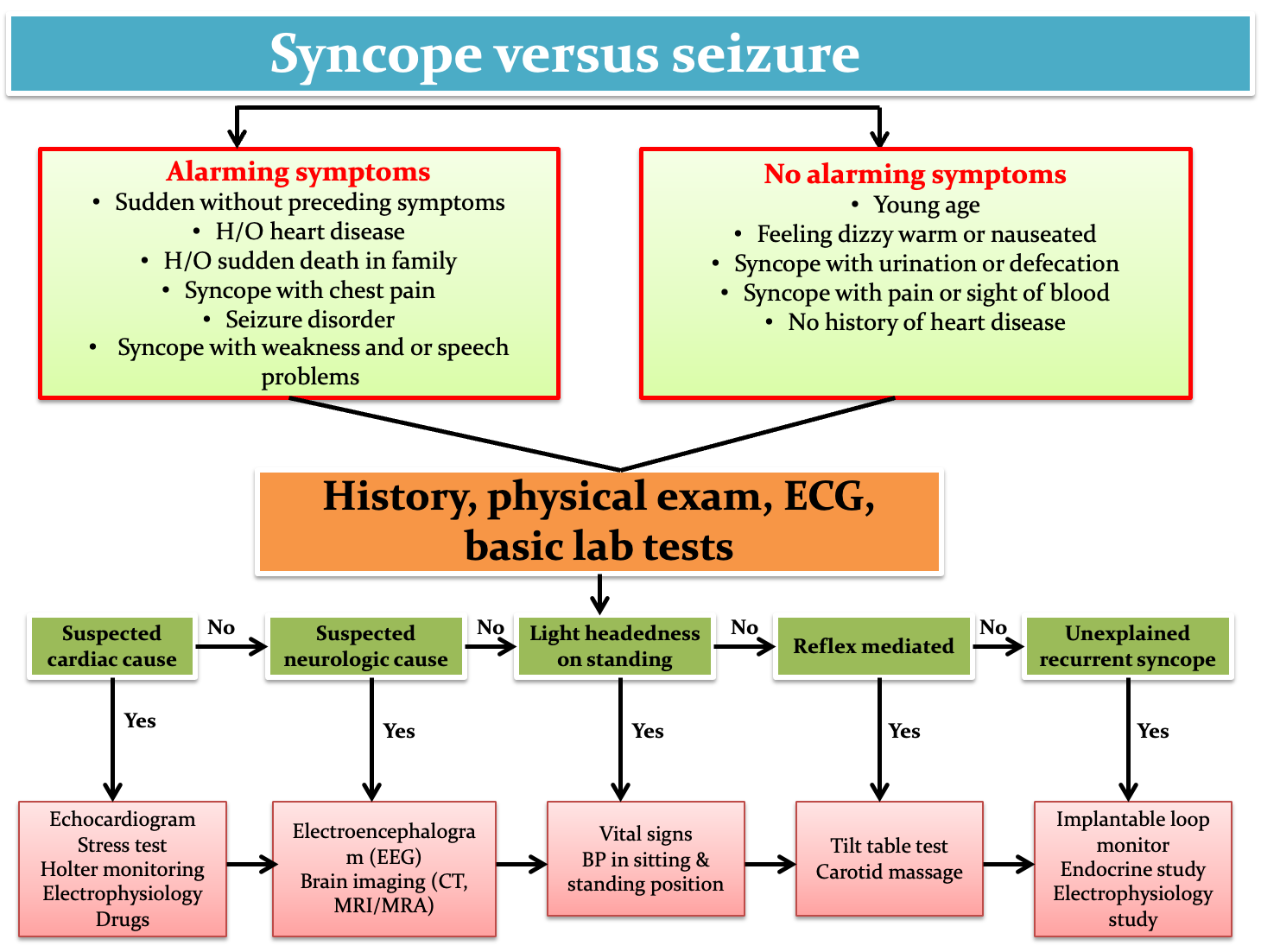Syncope is a temporary loss of consciousness usually related to insufficient blood flow to the brain. It’s also called fainting or “passing out.”
There are 3 major criteria for the definition of syncope:
- There must be a LOC. An initial loss of postural tone (going floppy)
- The loss of consciousness must be transient. Self limiting
- It is caused by global cerebral hypoperfusion, which almost always means a reduction in systemic blood pressure.
Fainting may be triggered by:
- Fear/emotional trauma.
- Severe pain.
- A sudden drop in BP.
- Low BS due to diabetes or from going too long without eating.
- Hyperventilation.
- Dehydration.
- Standing in one position for too long.
Syncope versus seizure
Many patients experiencing syncope are wrongly diagnosed with epilepsy and vice versa, with long term consequences. It is very important to distinguish these two classically similar events. It is helpful to know what before, during and after the event.
| Before | during | After |
|---|---|---|
| vWas there a trigger? vWas there a prodrome? vDid the patient change color? | vHow long did the unconsciousness last? vWas there a convulsion? vWas there tongue biting? vWas there urinary incontinence? | vHow long did it take for full recovery? |
